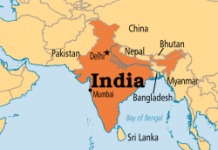![]() I received the following first class report from Rachel who has visited the Book Fair. She checked out the readers on display and this is what she found:
I received the following first class report from Rachel who has visited the Book Fair. She checked out the readers on display and this is what she found:
Hi Paul!
Just returned from Frankfurt. Didn’t have internet access while I was there (the Messe wanted me to pay 49€ per day for wifi, but I wasn’t that desperate), so I’m glad to be home.
I had an opportunity to check out three e-reader booths while I was there: IREX (with their two readers), Bookeen, and the new German txtr. I got some photos, too. I spoke with the folks at the different booths. My interactions were, I think, indicative of the differences between the companies themselves. At IREX, I spoke with Willem Endhoven, who is the VP of Marketing and Business Development of this Dutch company. It felt more like a formal interview than just a conversation, and he got a bit defensive when I asked him about the future of dedicated e-readers. He basically told me that if reading is what’s important to the consumer, than a dedicated e-reader will provide a high-quality reading experience. The US-only and consumer-aimed IREX is very sleek and appealing, though I’m not a stylus fan. Back in August, IREX and the Barnes & Noble eBookstore announced a partnership, but I wonder how that will be impacted by the introduction of the Nook. IREX says their new focus will be a color e-reader for 2011 (which they will need to pull forward if they want to remain competitive). Their professional reader is huge – rather like Bookeen’s old school reader that they use as an example of how far they’ve come. It’s very cool that users can hand-write notes with it (an “unending notepad”) and use it as a tool (for folks in the book trade, academics, etc.) plus has wifi and Bluetooth connectivity, but it costs 699€ and isn’t very attractive. Still, it had many of the capabilities I’d like to see contained within a sleeker, smaller, slimmer exterior. Wait, what am I talking about again? Hmm. Anyway, one of the first lines in the handout I was given: “The start of IREX Technologies in 2004 is so inextricably linked to the invention of the first commercially produced eReader that the stories must be told as one.” Something IREX should consider, in regards to their marketing materials, is that no one really cares who did what when. We just want to know who will do what next. In any case, the booth seemed quite busy when I stopped by, though I’m not sure who was working vs visiting. Still, Willem assured me that it was practically dead compared to earlier traffic.
At Bookeen, I spoke with the laidback co-founder Laurent Picard about their e-reader, e-books, and publishing in general. I really enjoyed my chat with him. Theirs is a slim reader, but I think calling it “pocket friendly” is a stretch. Or maybe I just have small pockets. Anyway, I was happy to come across a reader that is available in a variety of stores around the world. They’re also looking at creating a color reader and adding 3G and wifi capabilities. Laurent seemed very realistic about the future of dedicated readers, saying that at least for now they offer a much better reading experience than the smartphones. There wasn’t anyone else at the booth when I walked up, but there were a few interested folks there by the time I left. Still, it seemed like they had less traffic (not a scientific assessment, by any means) than IREX.
Two days later, I had a chance to check out the German txtr. While IREX and Bookeen had their booths in the tech hall, txtr wisely had theirs set up in what I thoughts was the children’s book and comics hall. But that was a great place to set up if they wanted a ton of German foot traffic (since the txtr is currently only available in Germany). When I stopped by on Sunday, there was a constant stream of people checking it out. I was glad to find a booklet in English, and the person I spoke with (Priska Herger) was great to speak with. I got the feeling that the people behind this reader really are book enthusiasts and are also young (mostly 20s-early 30s, I’m guessing, though I really don’t know). Even though txtr doesn’t have a touch screen (like the new Nook), you do use a swiping motion to scroll through the pages (something I really liked). I had some difficulty doing that, though, and I could see others were having some trouble with it, too. Understandably, this is an early demo and these won’t be available for sale (within Germany) until December, and I’m confident that they’ll get the kinks worked out. It seemed very intuitive (more so than the IREX) to use. The cost is 319€, but (again) Germany-only. Of the e-readers I saw, this one was the most exciting. Once I got home, I checked out txtr.com, which is the start of what seems like a social network for e-readers (as in, the people who read e-books). A few things I read in their brochure that are rather convincing and compelling:
“the txtr reader transports traditional literate culture into the digital world of today.”
“txtr reader is not against the traditional book, but for the act of reading.”
And in regards to my question about dedicated devices: “txtr reader is for people who concentrate on the essential.” Or “Sophisticated users intuitively prefer the expert solution to the all-round device.” (Though that makes me wonder if, perhaps, I am unsophisticated.)
All of Hall 3.0 (where the txtr booth was located) was packed, and the space around their booth was no different. I’m not sure how well the txtr would hold up against the e-readers already available in the US, but distribution in the US is a goal. I’m all for it, since I like this one and hope that the price of readers will decrease as more options are introduced. (Honestly, though, I’m in Europe, so products being available in the US doesn’t mean much to me.)
Cheers,
rachel
Editor’s note: Rachel is an American living in Estonia and you can find her blog, Fade Theory, here.


































Thank you for your kind remarks about our company (txtr) 🙂
Makes me very proud and happy. (And Priska too.)